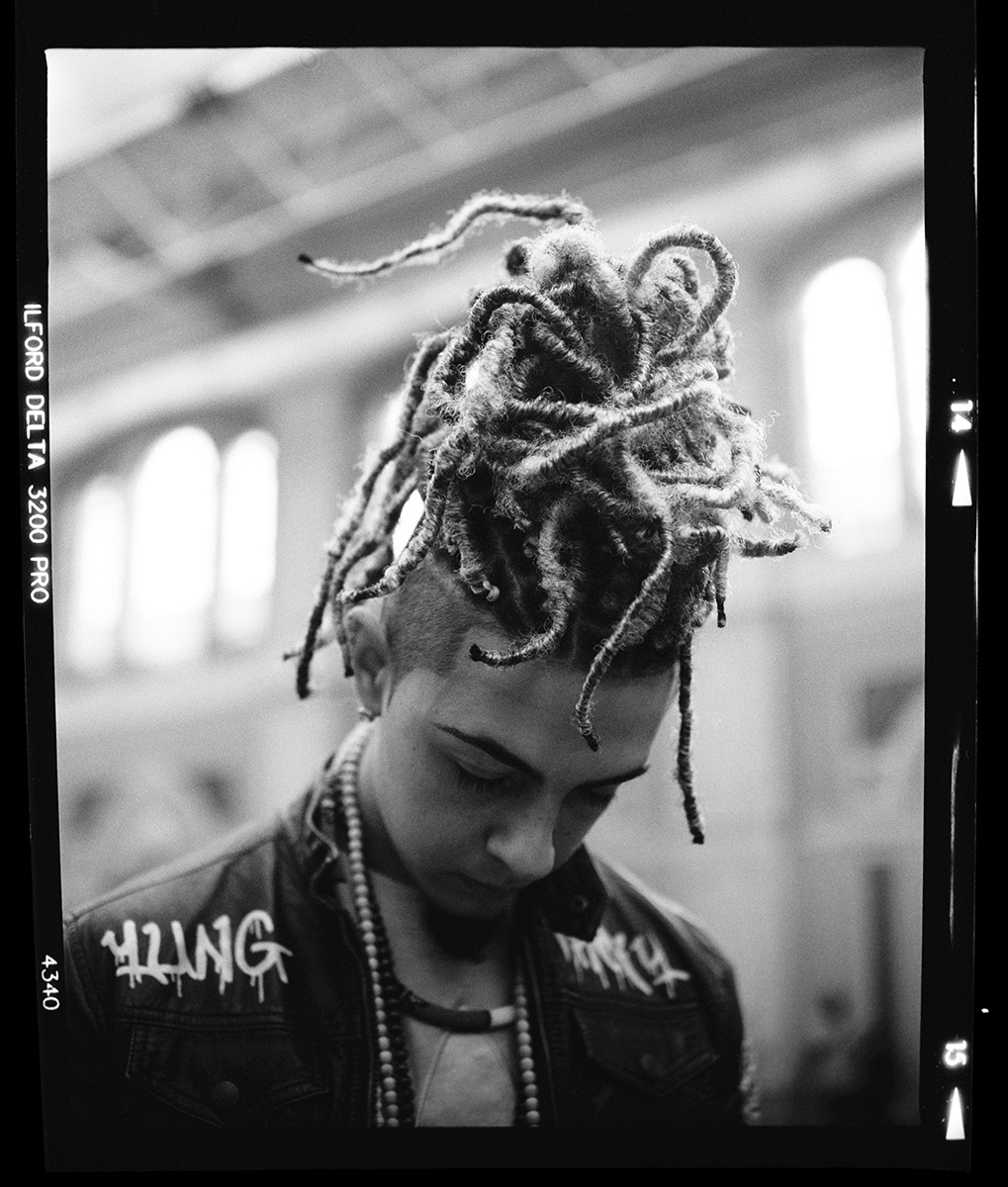This article was originally published by i-D UK.
“When I was growing up there was no scene for black alternative kids. The idea was unheard of. I want AFROPUNK to encourage people to learn from each other, speak to each other, and liberate one another.” -Matthew Morgan, founder, AFROPUNK
An afro and a punk. Both symbols of political resistance. The DIY or Die Trying approach that underpinned both the punk subculture and the black power movement went on to define generations in the 60s and 70s and — like a rolling stone, endures now more important than ever in our fraught political times.
“I always get asked, ‘how punk is AFROPUNK?'” its founder Matthew Morgan says over the phone from his Brooklyn apartment. “But punk’s not just about spiky hair and studded jackets… that’s a very commercial version of punk. For me, being disruptive and rebellious is what punk is all about.” Born in London, Matthew grew up between Stoke Newington and Haringey, and spent his teenage years dodging trouble by immersing himself in the capital’s burgeoning music and club culture. “I was always entrepreneurial,” he says. “At 11-years-old, I had a stall at Hoxton Market selling fake jewellery and children’s shoes. I could always see a punk attitude in the London gangsters growing up, in the spirit of Malcolm X, Bootsy Collins, Grace Jones… Growing up in the early 80s, I was completely consumed by hip-hop. But I was always into the political side of it, that was way more normal back then. I was going to West World, Wag Club, 100 Club… I’ve been obsessed with music and going out since I was 12.”
While working as a successful music manager for the likes of Santigold and Doc McKinney, Matthew co-produced the documentary Afro-Punk in 2003, with writer and director James Spooner, spotlighting punk bands such as Bad Brains and Cipher, and the kids that followed them who’d long been ignored by the mainstream. “There was no scene for black alternative kids back then,” Matthew explains. “The idea was unheard of; while filming Afro-Punk we were desperately trying to escape labels and boxes, but the film sparked a movement that we knew we had to bring to life.”
The first iteration of the AFROPUNK festival played out to a tight-knit crowd as The Liberation Sessions at The Delancey Club on New York’s Lower East Side. “There must have only been about 25-50 people there,” Matthew says. “We would show the film, and then have bands play. We’d invite bands to drive up from Chicago for $50, we had no money, but the feeling was so exhilarating. The looks on all the kids’ faces that made me think if we could bottle this and make it bigger, it could be so powerful…”
One session turned into many and in 2005 Matthew decided to approach the Brooklyn Academy of Music to ask them if he could host the first AFROPUNK festival on the 4th of July — with freedom as its theme. They said yes, and it wasn’t long before the festival caught fire swelling to a two-day celebration each August in New York’s Commodore Barry Park that hosts 70,000 people and encompasses all that is alternative in black music; from D’Angelo to Lauryn Hill, Lenny Kravitz to Lolawolf, Kelela to QuestLove. Bands like Unlocking the Truth and Death Grips, a nod to its punk roots.
Today AFROPUNK festivals take place all over the world; from Atlanta to Paris to London and Los Angeles, with Brazil (“There are 100 million people who identify themselves as afro in Brazil,” says Matthew) and Africa next on the hit list. “We want to be a global festival and we need those connections, we need to learn from each other and speak to each other and liberate one another,” he concludes. Matthew and his partner Jocelyn Cooper plan to use AFROPUNK’S growing social numbers (1.1m on Facebook and over half a million on Instagram) as a way to connect the dots with black alternative kids around the globe. “Digital will be our way forward. If Vice is the new MTV, we want to be the new BET.”
World domination happens one step at a time, and this September AFROPUNK took to Alexandra Palace to take their “carnival of consciousness” to London for the very first time. The event didn’t go without its controversy as fans took to Twitter to air their disdain for then-headliner M.I.A whose negative comments on the Black Lives Matter movement in the US felt conflicting with the celebration of the black community AFROPUNK has come to represent. “The whole situation was hard,” Matthew say, clearly still pained by the uproar, “but it did create a conversation I don’t think we would have had had that not of happened. I have learned the work you do before the festival is imperative, but with AFROPUNK London, the silent majority were way more important than the aggrieved minority. What people got from being there was what truly mattered.” Over 10,000 people came out strong for the festival, that saw SZA, Cakes Da Killa, and Ho9909 join British talent Lady Leshurr, Young Fathers, Gaika and Skinny Girl Diet in a day that hit its crescendo with headliner Grace Jones, who electrified audiences with a memorable performance of her greatest hits.
AFROPUNK is not just a festival, it’s a symbol of something pure that’s not dictated by ticket sales or corporate sponsors. “If it was I would sling beer and peanuts to anyone who would have them and have a H&M collection!” Matthew laughs. From the freedom of the fashion on display and the music heard, to the inclusive, overwhelmingly positive energy, AFROPUNK is a safe space for people to explore music, art, themselves, and one another. It provides an ever-crucial place for black kids — particularly those who don’t belong — to feel comfortable in order to flourish. Long may the party continue.
Dre’Sean Hendrix, 17, Birmingham
What do you do? I’m an entrepreneur. I write my own musica nd am hoping to play at AFROPUNK in 2017. I’m writing a book on black royal history and I make costumes and paintings. What attracted you to AFROPUNK London? It’s a place where all brothers and sisters, kings and queens can come together and unite. It’s a mix between politics, music, and art and that’s what makes me as a person. When I was there it felt like I was home. What’s an issue close to your heart? How black youth feel. I try to embrace all beauty within the community so that black children will grow up to love themselves.
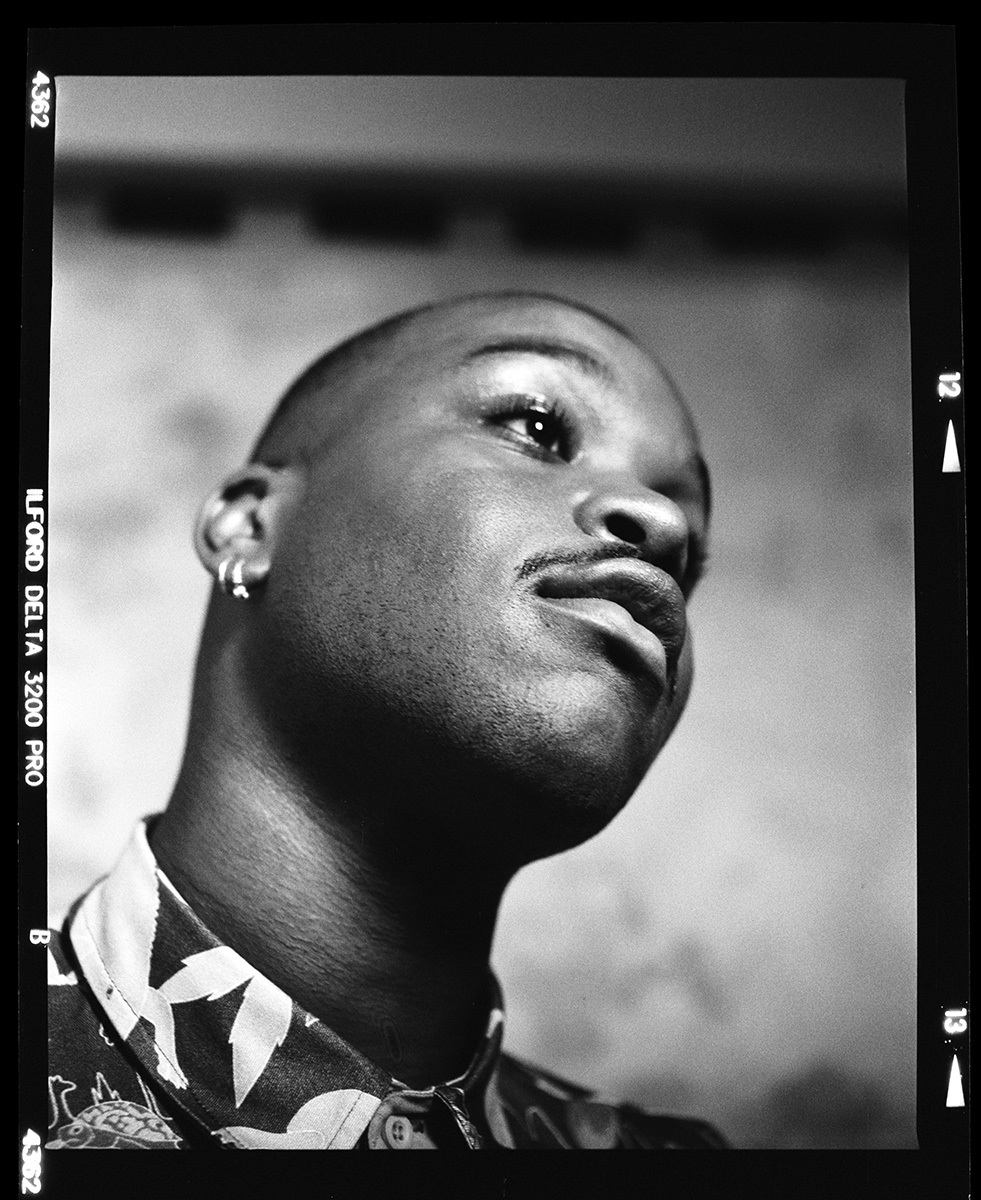
Cakes Da Killa
Rashard Bradshaw (or Cakes Da Killa to you and me) electrified AFROPUNK London’s audience with his energetic set of classics from his 2013 mixtape, The Eulogy, as well as new cuts from his newly-released album Hedonism. The rapper recently celebrated with a midnight gig at Camden Assembly Hall with support from House of Trax co-founder Rushmore and legendary ballroom DJ and producer Vjuan Allure. With appearances at AFROPUNK London and Los Angeles, and a freshly released video for his track “New Phone,” 2017 will see Cakes continue to kill it.
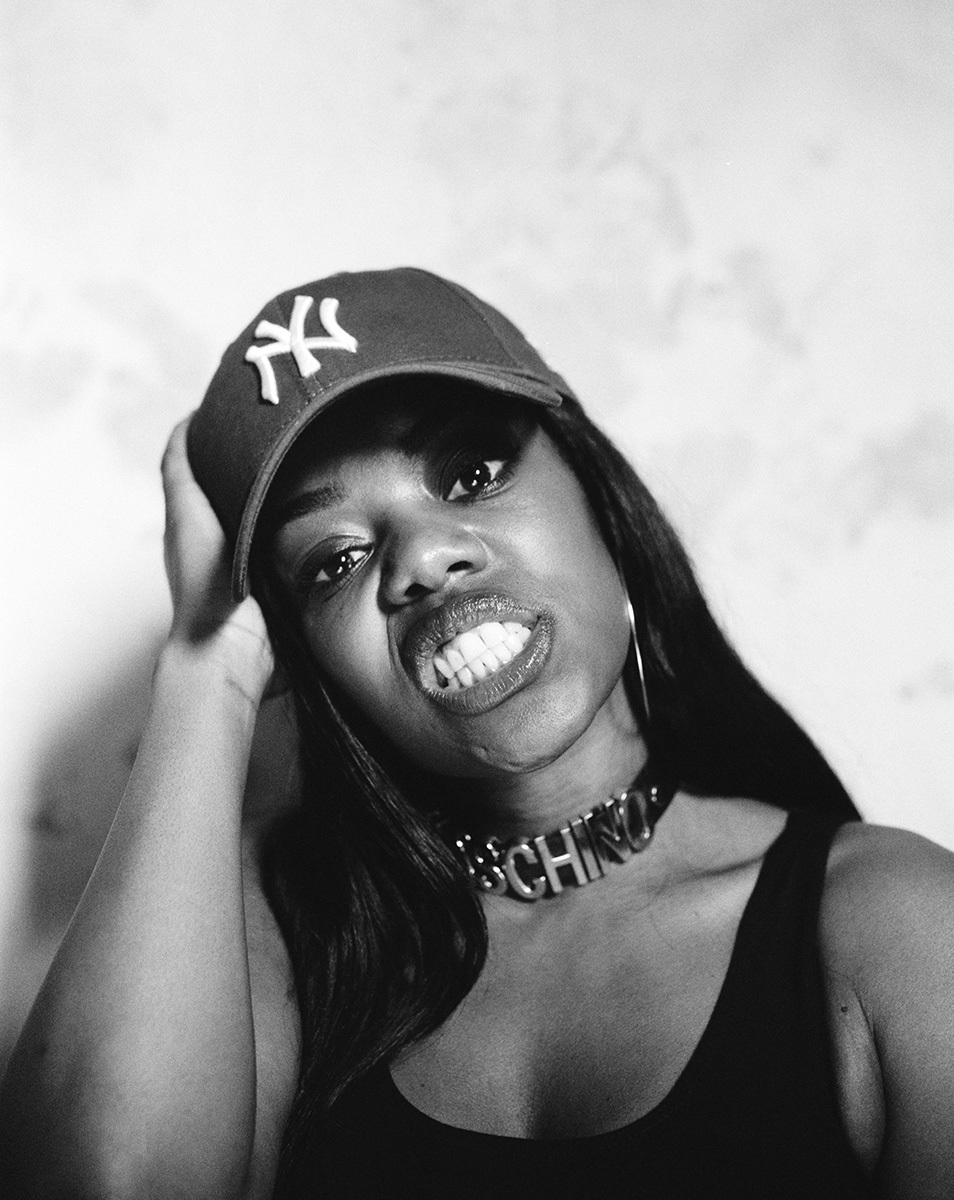
Lady Leshurr
2016 has undoubtedly been the year of Lady Leshurr. Birmingham’s first lady of grime and one of AFROPUNK London’s most exciting performers is one of the UK’s most notable MCs. She’s racked up over 100 million views on YouTube (thanks in part to her Queen’s Speeches series of freestyles), announced UK and International tour dates in 2017 and scooped the Best Female Act award at 2016’s MOBO Awards, beating fellow brits Little Simz and Katy B. All this without giving into the allure of a major record deal. “I’ve held out for so long,” Lady Leshurr told i-D in an interview earlier this year. “I’ve put my ground work in, I’ve stayed true to myself, I’ve never sold myself short. And I never will.” All hail the Queen!
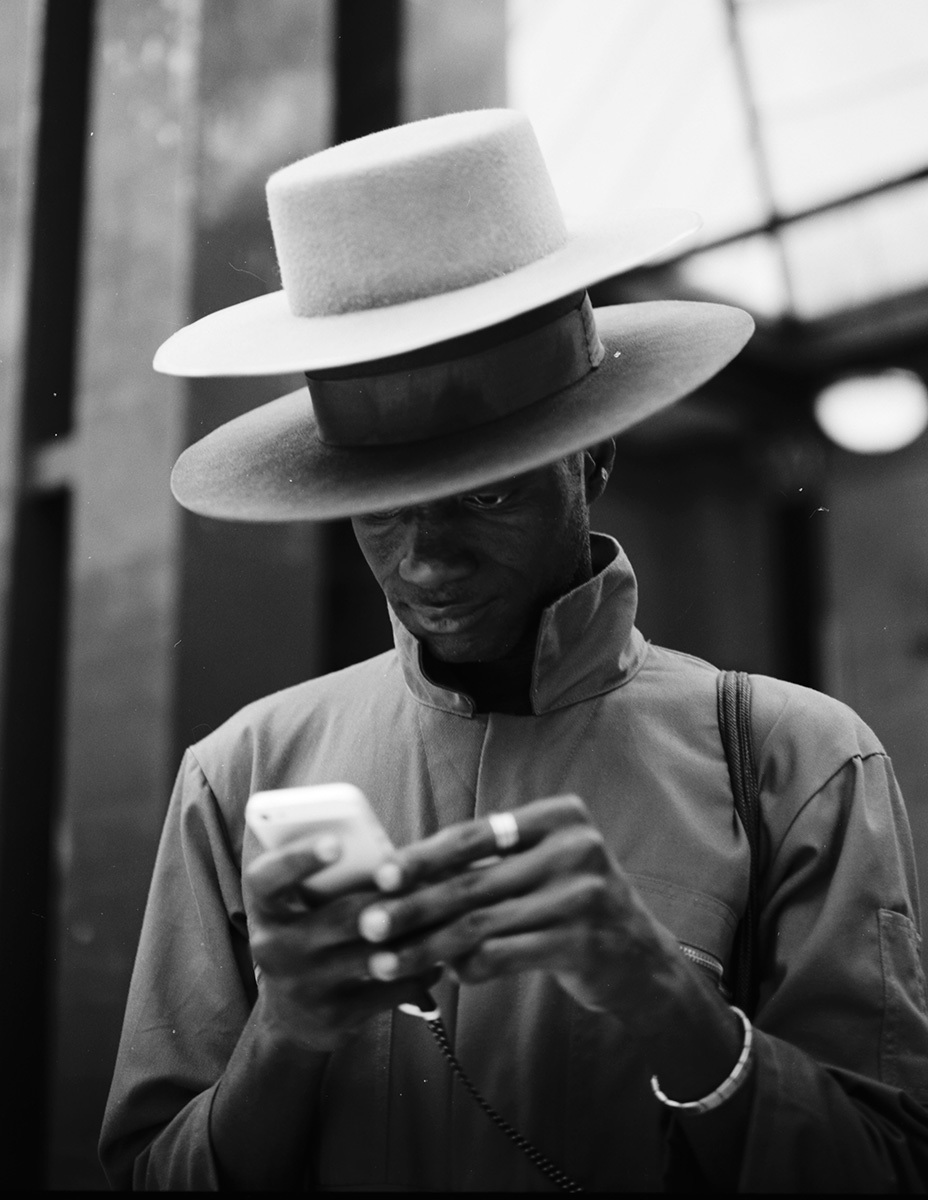
Abdel Queta Tavares, 24, London
What attracted you to AFROPUNK London? First of all it’s the first time that it has been held in London, which is exciting. Plus, It’s a festival where you can meet fearless people with their own style. Why is a festival like AFROPUNK important to culture in the UK? AFROPUNK brings old-school icons like Grace Jones who I’d never usually be able to see. As a huge fan of hers, watching her kill it is always an honor. Whose activism do you greatly admire? The Nelson Mandela Foundation. What is the best way to have your voice be heard? Art is the best way to express yourself and have your voice heard.
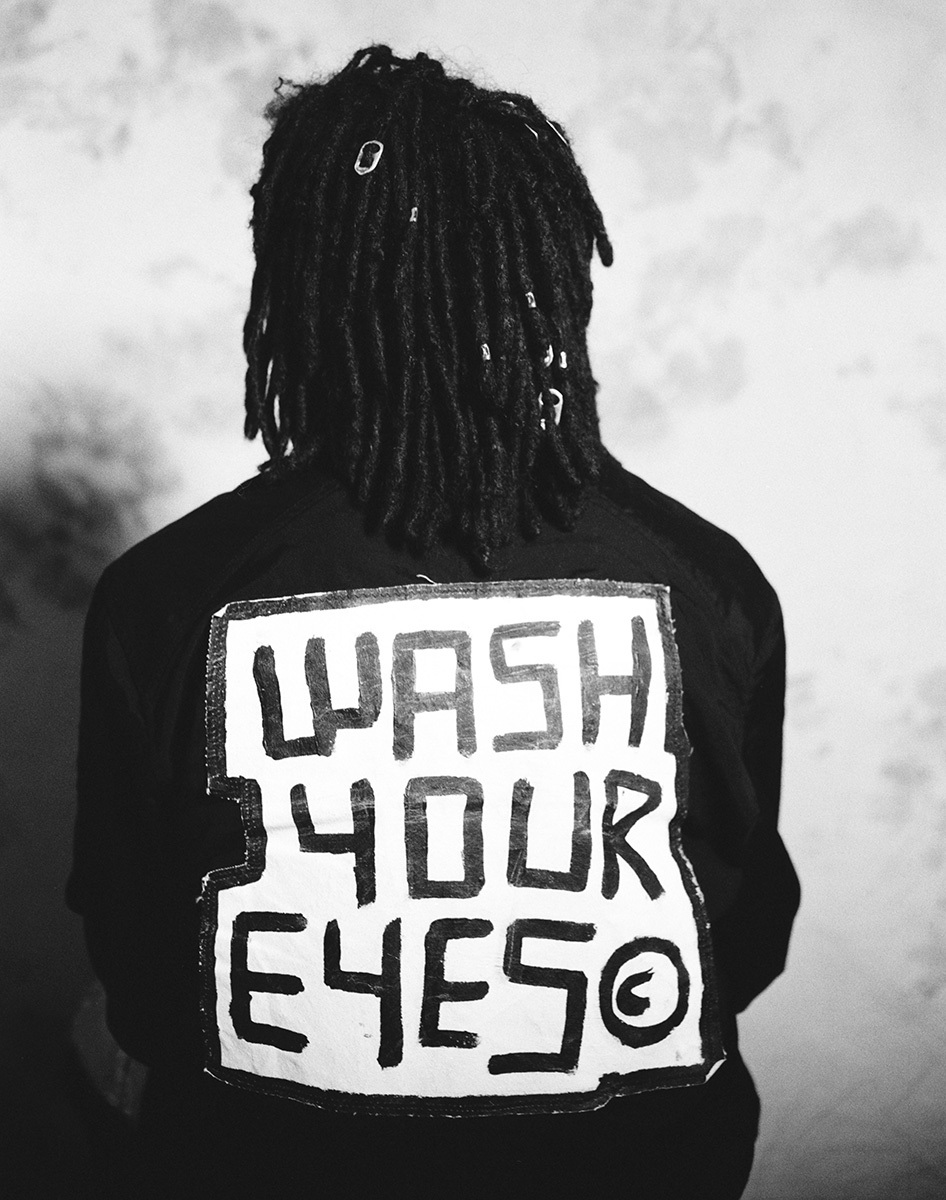
Ryan Hawaii
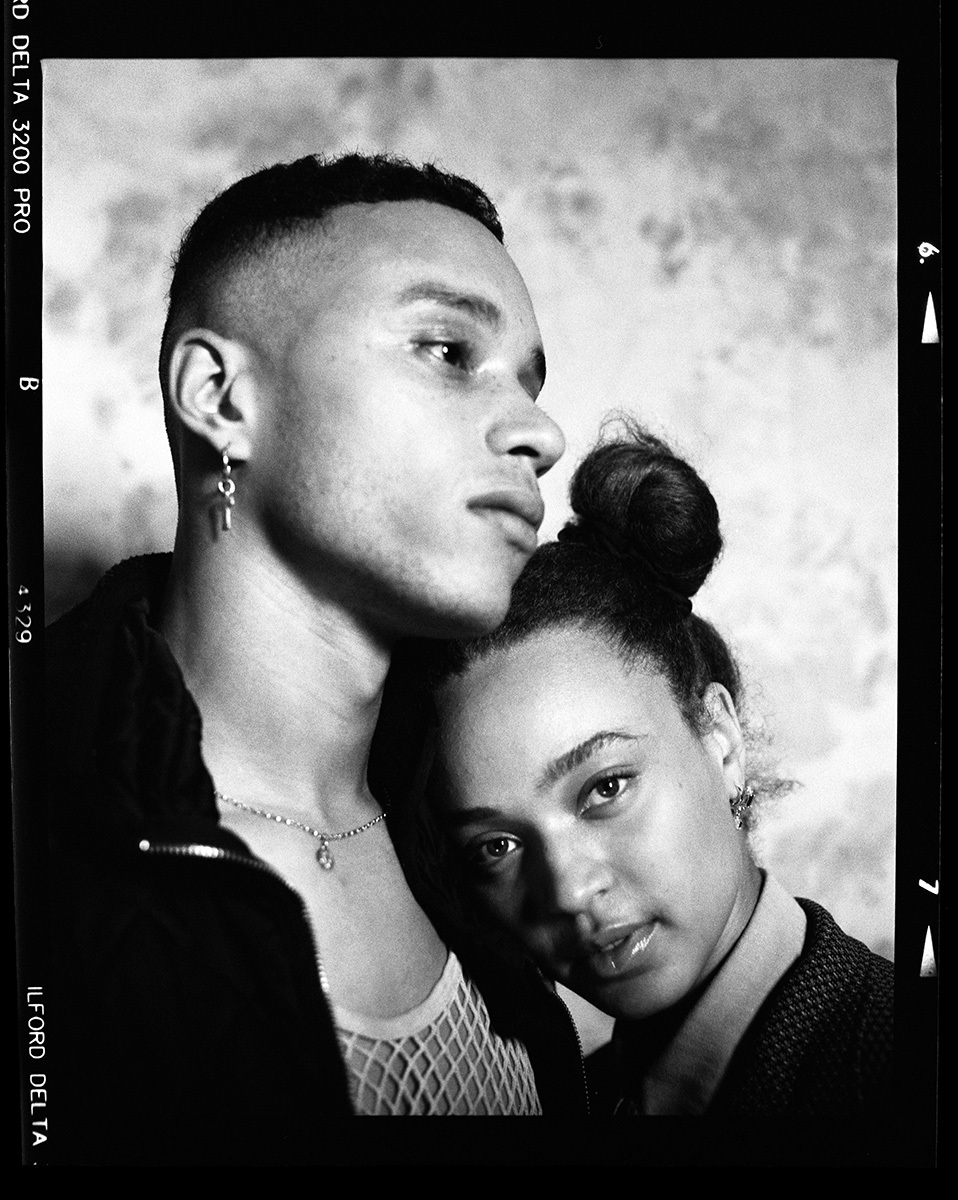
Tyler Wright, 21, Hackney
What attracted you to AFROPUNK London? It was the sound that was on offer, the music and the chance to be somewhere so influential and special to me personally. What AFROPUNK stands for is truly beautiful. Tell us about an issue close to your heart? Inequality. Because why do we need to live in a world where people cannot be equal? it makes no sense. Whose activism do you greatly admire? Angela Davis.
Connie Constance, 21, Stratford
Why is a festival like AFROPUNK important to culture in the UK? It’s important for brown people to support each other, especially in the music industry where black and brown artists always govern the underground scene but rarely make it into the limelight. We can’t support what we don’t know, so AFROPUNK is a great place to be introduced to new exciting talented musicians.
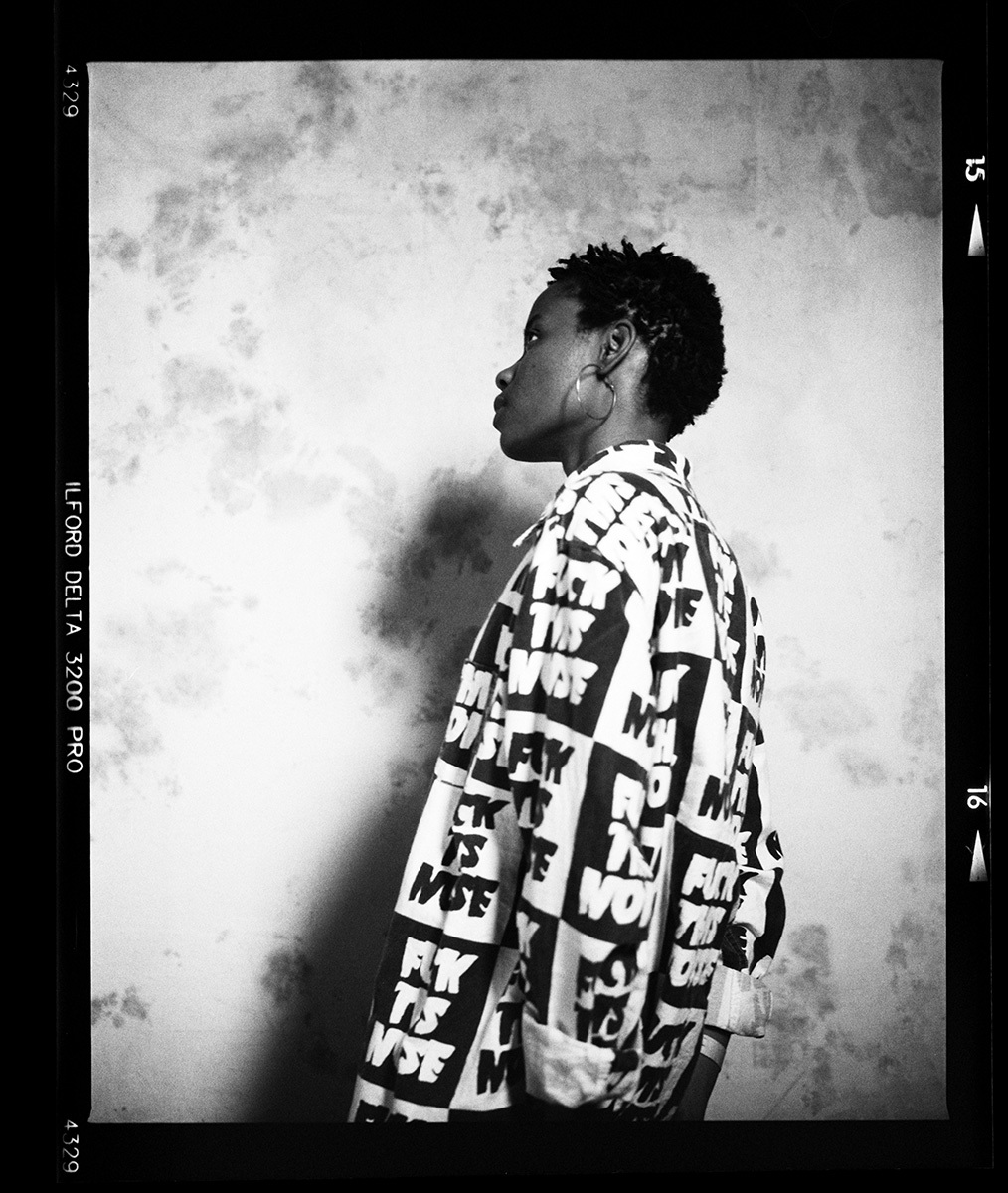
Tabitha
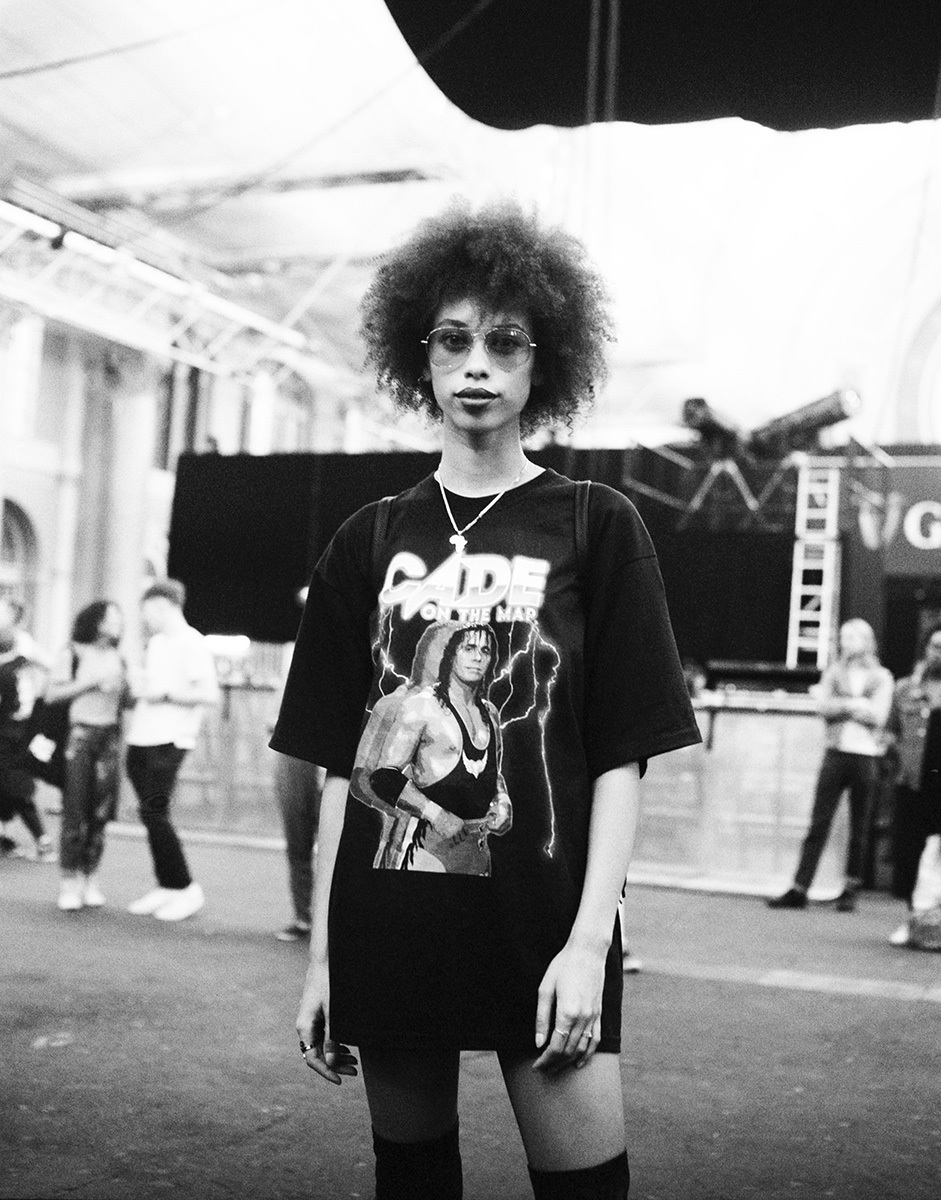
Pippa Melody
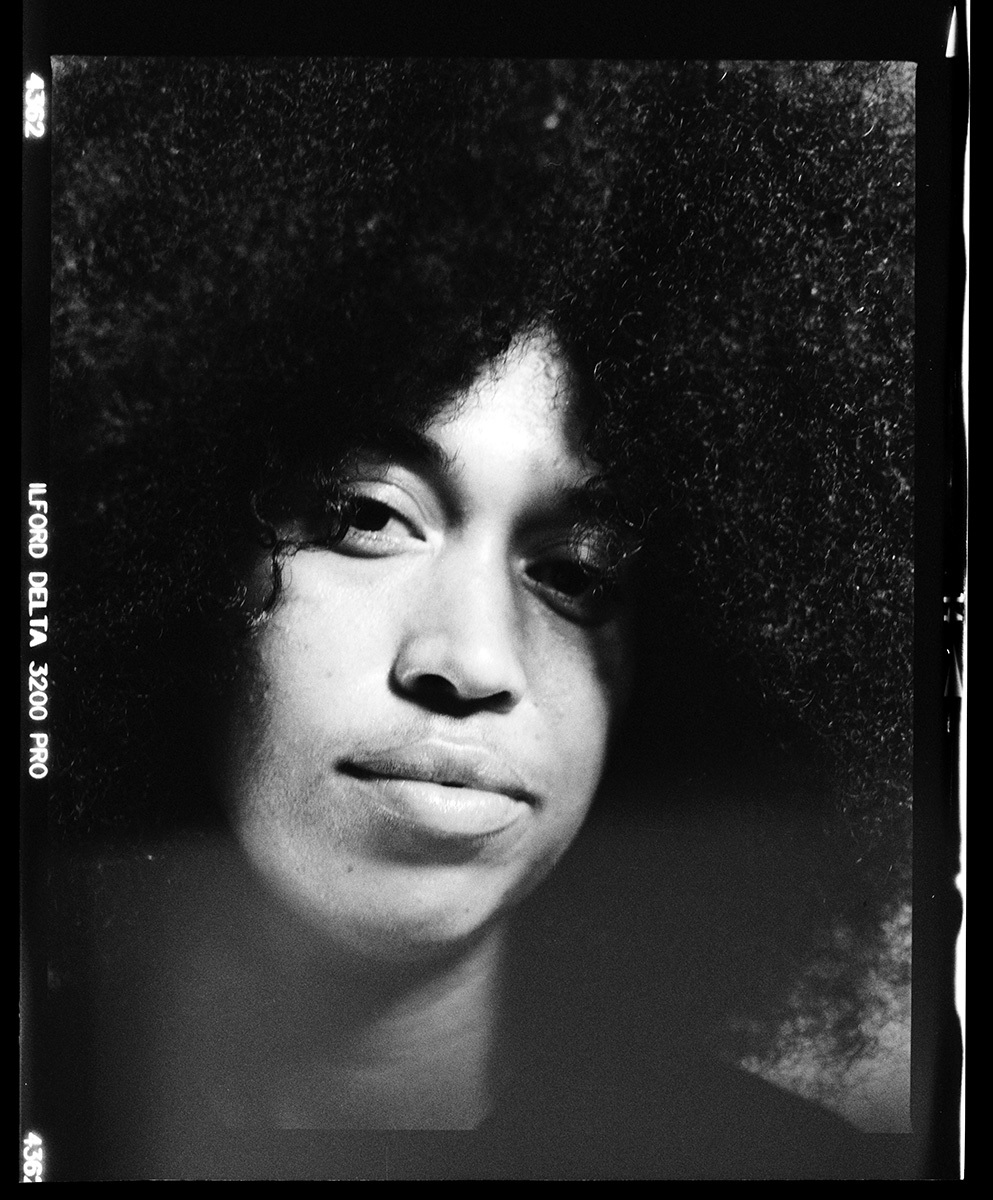
Tariqah Walikraam, 28, Bermuda
What attracted you to AFROPUNK London? When I heard it it was coming to London, I jumped all over it because I knew that I would have a chance to catch up with family I hadn’t seen in years. Also, SZA has been one of my favorite artists since I heard Z. Why is AFROPUNK important to culture in the UK? It’s a necessary celebration of our culture, embracing our diversity, our love, and it creates a safe space for all of us to come together to dance, network, meet like minds, and remember who we are. What’s an issue close to your heart? Knowledge of self, self-love, and self-care. As someone who used to suffer from depression and self hate, this is a message that I constantly preach to my followers because love is a powerful thing.

Ho99o9
Putting the punk into AFROPUNK London, Eaddy and The OGM of Ho99o9 have been i-D favorites since the release of their debut EP Horrors of 1999. Marrying their love of gangsta hip hop (think DMX and Bone Thugs-n-Harmony) and 80s underground hardcore, the coolest looking duo in music has just released two new tracks on Soundcloud. The Dope Dealerz takes influences from modern trap while Double Barrel is the angsty metal you listened to as a moody teenager with their searing (and at times, blood-curdling) vocals on top. Don’t be freaked out!

Kiana Nicole, 21, south London
What do you do? I work at Wildabout Magazine and I’m an aspiring model. What makes AFROPUNK unique? AFROPUNK continuously remains active throughout the year. They’re more than just a festival, they’re a movement that constantly engages and supports black content. In your opinion, what has been the biggest talking point of 2016? Trump. I’m worried for the USA. Whose activism do you greatly admire? Amandla Stenberg. I admire her bravery in vocalizing her views with a zero-fucks attitude. I’m also a fan of Chimamanda Ngozi Adichie.

Aden
Credits
Text Lynette Nylander
Photography Olivia Rose
Photography assistance Rowan Hall.
